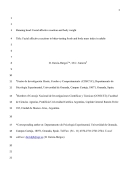Por favor, use este identificador para citar o enlazar este ítem:
https://repositorio.uca.edu.ar/handle/123456789/5451| Campo DC | Valor | Lengua/Idioma |
|---|---|---|
| dc.contributor.author | Zamora, María Clara | es |
| dc.contributor.author | García Burgos, David | es |
| dc.contributor.other | Centro de Investigación Mente, Cerebro y Comportamiento (CIMCYC). Departamento de Psicología Experimental. Universidad de Granada | es |
| dc.contributor.other | Consejo Nacional de Investigaciones Científicas y Técnicas (CONICET) | es |
| dc.contributor.other | Facultad de Ciencias Agrarias. Pontificia Universidad Católica Argentina | es |
| dc.date.accessioned | 2019-06-06T00:48:20Z | - |
| dc.date.available | 2019-06-06T00:48:20Z | - |
| dc.date.issued | 2013 | - |
| dc.identifier.citation | García Burgos, D. y M. C. Zamora. 2013. Facial affective reactions to bitter-tasting foods and body mass index in adults [en línea]. Preprint del documento publicado en Appetite. 71(1). Disponible en: https://repositorio.uca.edu.ar/handle/123456789/5451 | es |
| dc.identifier.uri | https://repositorio.uca.edu.ar/handle/123456789/5451 | - |
| dc.description.abstract | Abstract:Differences in food consumption among body-weight statuses (e.g., higher fruit intake linked with lower body mass index (BMI) and energy-dense products with higher BMI) has raised the question of why people who are overweight or are at risk of becoming overweight eat differently from thinner people. One explanation, in terms of sensitivity to affective properties of food, suggests that palatability-driven consumption is likely to be an important contributor to food intake, and therefore body weight. Extending this approach to unpalatable tastes, we examined the relationship between aversive reactions to foods and BMI. We hypothesized that people who have a high BMI will show more negative affective reactions to bitter-tasting stimuli, even after controlling for sensory perception differences. Given that hedonic reactions may influence consumption even without conscious feelings of pleasure/displeasure, the facial expressions were included in order to provide more direct access to affective systems than subjective reports. Forty adults (28 females, 12 males) participated voluntarily. Their ages ranged from 18 to 46 years (M=24.2, SD=5.8). On the basis of BMI, participants were classified as low BMI (BMI<20; n=20) and high BMI (BMI>23; n=20). The mean BMI was 19.1 for low BMI (SD=0.7) and 25.2 for high BMI participants (SD=1.8). Each subject tasted 5 ml of a grapefruit juice drink and a bitter chocolate drink. Subjects rated the drinks' hedonic and incentive value, familiarity and bitter intensity immediately after each stimulus presentation. The results indicated that high BMI participants reacted to bitter stimuli showing more profound changes from baseline in neutral and disgust facial expressions compared with low BMI. No differences between groups were detected for the subjective pleasantness and familiarity. The research here is the first to examine how affective facial reactions to bitter food, apart from taste responsiveness, can predict differences in BMI | es |
| dc.format | application/pdf | es |
| dc.language.iso | eng | es |
| dc.rights | Acceso Abierto | es |
| dc.rights.uri | https://creativecommons.org/licenses/by-nc-sa/4.0/ | es |
| dc.source | Preprint del documento publicado en Appetite. 71(1), 2013 | es |
| dc.subject | REACCION FACIAL AFECTIVA | es |
| dc.subject | ALIMENTOS | es |
| dc.subject | INDICE DE MASA CORPORAL | es |
| dc.subject | SOBREPESO | es |
| dc.subject | GUSTO | es |
| dc.subject | ADULTOS | es |
| dc.title | Facial affective reactions to bitter-tasting foods and body mass index in adults | es |
| dc.type | Artículo | es |
| dc.identifier.doi | 10.1016/j.appet.2013.08.013 | - |
| dc.identifier.pmid | 23994505 | - |
| dc.identifier.scopus | https://www.scopus.com/record/pubmetrics.uri?eid=2-s2.0-84884180075&origin=recordpage | - |
| uca.path | Facultad de Ingeniería y Ciencias Agrarias|Artículos | es |
| uca.disciplina | INGENIERIA EN ALIMENTOS | es |
| uca.filename | /home/data-uca-generic/folder_generic_common/Ing. y Cs.Agrarias/Art�culos/facial-effective-reactions-bitter/metadata.xml | es |
| uca.issnrd | 1 | es |
| uca.affiliation | Fil: García Burgos, D. Universidad de Granada. Facultad de Psicología. Centro de Investigación Mente, Cerebro y Comportamiento; España | es |
| uca.affiliation | Fil: Zamora, María Clara. Consejo Nacional de Investigaciones Científicas y Técnicas; Argentina | es |
| uca.affiliation | Fil: Zamora, María Clara. Pontificia Universidad Católica Argentina. Facultad de Ciencias Agrarias; Argentina | es |
| local.message.claim | 2019-06-06T18:26:26.026-0300|||null|||submit_approve|||dc_contributor_author|||jsp.dspace.authority-listclaim.default.note | * |
| uca.version | publishedVersion | es |
| item.grantfulltext | open | - |
| item.languageiso639-1 | en | - |
| item.fulltext | With Fulltext | - |
| crisitem.author.dept | Facultad de Ingeniería y Ciencias Agrarias | - |
| crisitem.author.orcid | 0000-0002-2900-4529 | - |
| crisitem.author.parentorg | Pontificia Universidad Católica Argentina | - |
| Aparece en las colecciones: | Artículos | |
Ficheros en este ítem:
| Fichero | Descripción | Tamaño | Formato | |
|---|---|---|---|---|
| facial-effective-reactions-bitter.pdf | 762,18 kB | Adobe PDF |  Visualizar/Abrir |
Visualizaciones de página(s)
264
comprobado en 27-abr-2024
Descarga(s)
409
comprobado en 27-abr-2024
Google ScholarTM
Ver en Google Scholar
Altmetric
Altmetric
Este ítem está sujeto a una Licencia Creative Commons

